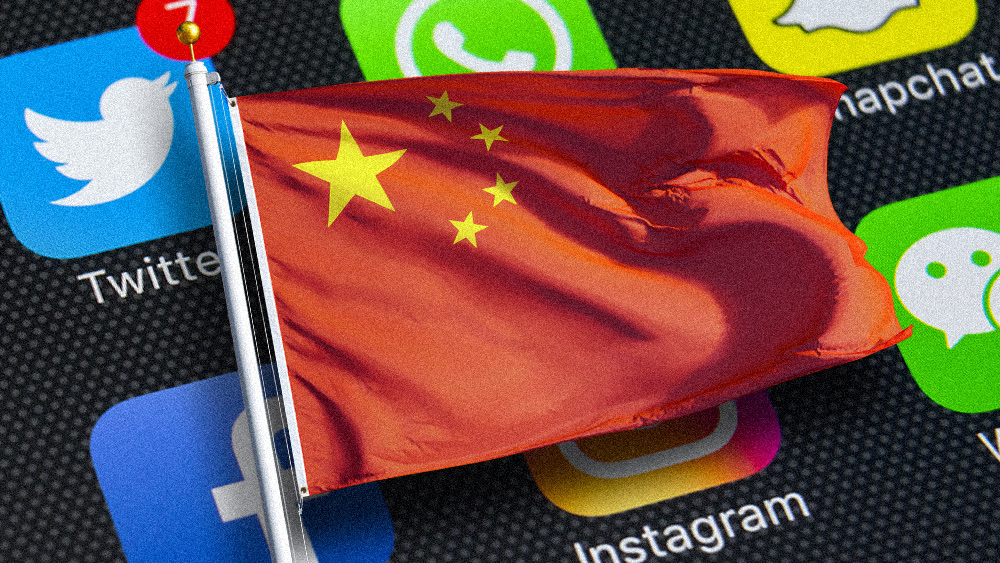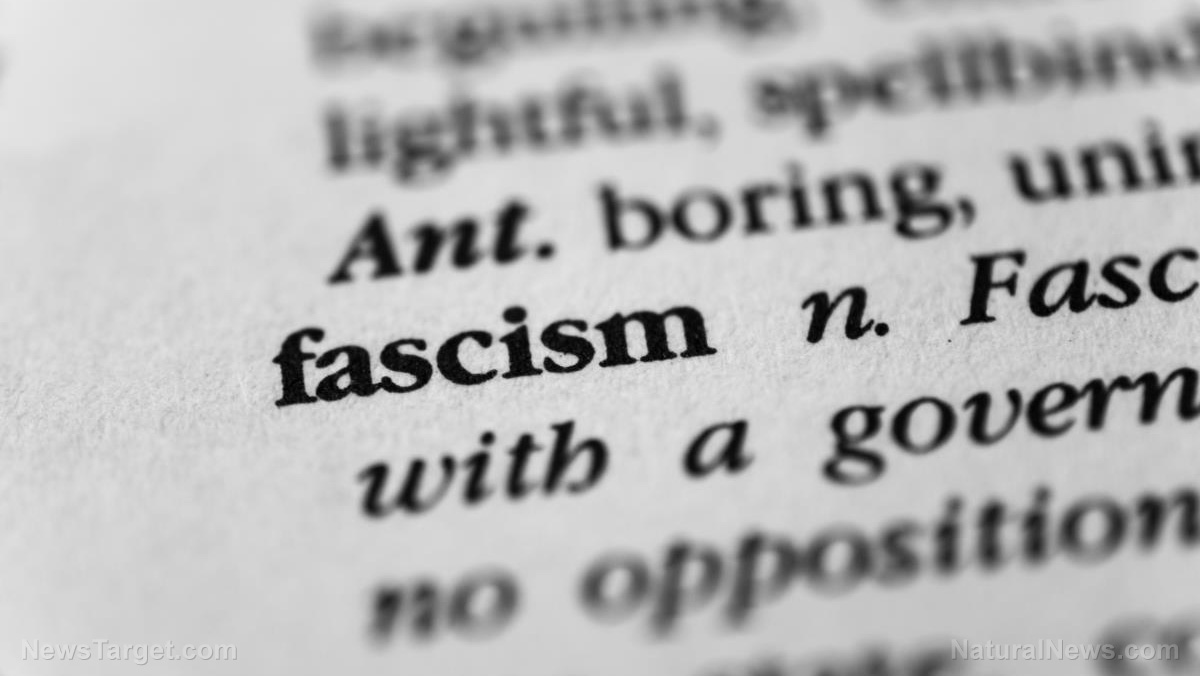China imprisoning citizens for critical Twitter posts even though the website is banned in the Mainland
03/08/2021 / By Arsenio Toledo

Over the past three years, the Chinese Communist Party sentenced more than 50 people for questioning its rule, criticizing state leaders and allegedly disrupting public order on Twitter. This is despite the fact that the popular social media platform is banned in the country.
Chinese dissidents and human rights activists claim that the use of prison sentences marks an escalation of Beijing’s efforts to shut down any criticism made about its rule outside of the slice of the internet it controls. This is a marked escalation of its past actions, which only involved harassment and detention. (Related: The United Nations is now partners with the Chinese Communist Party; turned over names of Chinese dissidents to the regime.)
“In the past they only made threats and took statements,” said Huang Genbao, a member of the online dissident group known as Rose China. “This time they were doing things for real, I didn’t expect it.”
Huang was detained in May 2019 and spent 16 months in detention for criticizing the CCP and party leaders on Twitter.
The offensive speech regularly cited by Chinese court records involves criticism of the Communist Party, President Xi Jinping and other high-ranking state leaders. Records also cite discussions revolving around areas where China is attempting to exert more control and influence over a population hostile to its presence. These areas include Hong Kong and Xinjiang, as well as Taiwan, the democratically-ruled island nation that Beijing claims as its own territory.
What is more surprising about these Chinese citizens who have been sentenced is the reach of their Twitter accounts or lack of it. Their followers typically numbered in the hundreds or the low thousands. One person even had less than 30 followers upon his detention.
Chinese diplomats and state media accounts have flooded Twitter in recent years as the CCP expands its propaganda drive to social media, where it hopes it can boost its influence and global image. Cyber-policy analysts have even recorded instances of China financing trolling campaigns to trumpet Chinese government viewpoints and attack anybody on the website critical of the communist regime.
Multiple people arrested in recent months for criticizing China
Zhao Shaoqing, a 31-year-old resident of Tianjin, a city less than 100 miles to the southeast of Beijing, was arrested a month after he tweeted a mild criticism of the way China was handling the Wuhan coronavirus (COVID-19).
“The Chinese Communist Party system regards stability as its principle, and in the face of big problems, everyone protects themselves,” said Zhou in Feb. 2020. He said hospital and health officials were “intentionally or otherwise, [reducing] the number of confirmed cases.”
Zhou was accused of publishing and retweeting more than 120 posts that tarnished the reputations of state leaders, the party, the country’s communist political system and its response to the coronavirus pandemic. He only had around 200 followers on his Twitter account.
A former employee of Chinese tech firm ByteDance, Zhao used to scrub “politically sensitive” material from Chinese social media websites, including the video-sharing platform TikTok.
Back in November, a local court sentenced Zhou to nine months in prison. He pled guilty and confessed to his crimes during the trial to secure a lighter sentence. Zhou said this experience has only deepened his disdain for the CCP.
Sun Jiadong, a 41-year-old resident of Zhengzhou, a city in the province of Henan in Central China, was detained in late 2019 for allegedly spreading lies about the CCP, the situation in Xinjiang and Hong Kong and the status of Taiwan.
Court records highlighted the fact that Sun’s posts drew 168 likes as well as retweets from 10 users, and comments from 95 others. The records failed to mention that Sun only had 27 followers at the time of his detention.
“Glory to Hong Kong, shame on Communist bandits,” tweeted Sun in Oct. 2019 in reply to a post by a Chinese state media account. He was sentenced to 13 months in prison in Dec. 2020, which he completed that same month as time served.
Even Chinese citizens living overseas are being arrested for posting critical statements online
In late February, China bestowed posthumous honors on four members of the Chinese military – the People’s Liberation Army – who died during the border clashes with Indian forces in the disputed regions of the Himalayas. A week after these honors were given to the dead soldiers, Chinese authorities arrested at least six people for posts and tweets regarding the clashes.
The six individuals, all men, were detained under a 2018 law that made it illegal to defame “heroes and martyrs.”
Furthermore, Chinese authorities are pursuing a seventh man, a 19-year-old who has been living overseas since July 2019, “on suspicion of causing trouble on the internet.”
The man, known only by his surname of Wang, allegedly “slandered and belittled” the soldiers.
“Public security organs will crack down on acts that openly insult the deeds and spirit of heroes and martyrs in accordance with the law,” read a statement released by the Chongqing police.
According to Yaqui Wang, the China researcher for Human Rights Watch, the CCP using the legal route concurrently with its harassment campaign shows an escalation in the state’s attempt to suppress free speech.
“Authorities used to harass overseas-based critics or their China-based families without resorting to the formal prosecution mechanism or leaving a paper trail,” said Wang during an interview with The Guardian. “Now, they don’t feel they need to be discreet about it, or maybe they even want to be conspicuous about it.”
Americans are not the only ones dealing with censorship issues. Learn more about the state of free speech in other parts of the world, such as in China, by reading the latest articles at Censorship.news.
Sources include:
Tagged Under: banned, CCP, Censored, Censorship, China, Chinese Communist Party, Chinese dissidents, communist China, enslaved, free speech, freedom, Liberty, national security, persecution, politics, Twitter
RECENT NEWS & ARTICLES
COPYRIGHT © 2018 ORWELLIAN.NEWS
All content posted on this site is protected under Free Speech. Orwellian.news is not responsible for content written by contributing authors. The information on this site is provided for educational and entertainment purposes only. It is not intended as a substitute for professional advice of any kind. Orwellian.news assumes no responsibility for the use or misuse of this material. All trademarks, registered trademarks and service marks mentioned on this site are the property of their respective owners.





















